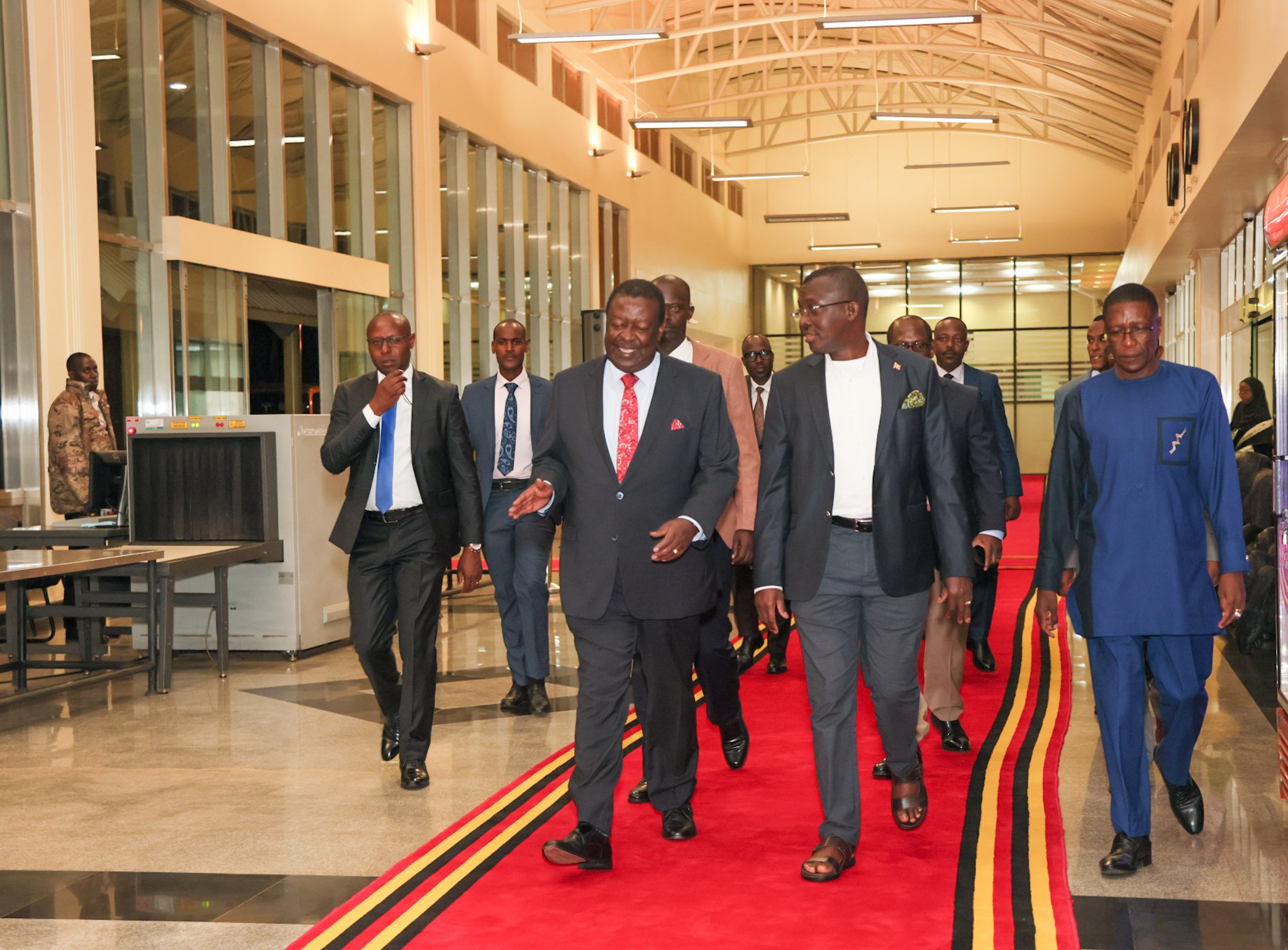Kenya has prioritized coffee as one of the quick turnaround key subsectors in economic development.
Prime Cabinet Secretary Musalia Mudavadi says the Government has developed various initiatives which seeks to increase Kenya’s coffee production from the current 51,000 metric tonnes realized in the year 2021/22 to 100,000 metric tonnes by the year 2025, thus contribute to an increase in Africa’s coffee production globally.
He said coffee production in Kenya has been declining over the years due to challenges like climate change, perennial price volatility, market access and low domestic consumption among others.
“The decline in production has adversely affected farmers’ earning and their livelihoods. Kenya has prioritized coffee as one of the quick turnaround key subsectors in our economic development model popularly known as the Bottom-Up Economic Transformative Agenda (BETA) as espoused in the Kenya Kwanza Government Manifesto 2022-2027,” said Mudavadi.
He was speaking in Uganda on Tuesday during the second African Coffee Summit, running under the theme ‘Transforming the African coffee sector through value addition.
The declining production is compared to historical performance where coffee attained remarkable progress soon after independence leading to growth of an all time high production of 129,637 metric tonnes in 1987/88 during the famous coffee boom.
African coffee accounts for about 12 per cent of the world’s coffee production, making it the second-largest most traded commodity in Africa after oil.
In 2021/2022 for instance, Africa’s coffee production registered a dismal performance of 19.27 million bags of coffee compared to a global production of 167.2 million bags in the same period.
This is a paltry 11.5 per cent against a potential of 40 per cent attributable to Africa’s comparative advantage in land acreage, rainfall and fertile soils.
“As a continent we must develop appropriate strategies to reverse this negative trend and reclaim our position on the global coffee platform,” he noted.
Mudavadi assured that Kenya has come up with various initiatives to reverse declining performance of the coffee sector which include e-voucher fertilizer input subsidy programme for coffee farmers, rollout of coffee revitalization program and establishment of cherry advance revolving fund.
Other initiatives the Government is undertaking include coffee credit financing through establishment of Commodities Fund to provide affordable finance credit for coffee farming and other agricultural produce as well as reviewing the subsector’s legislations.
“Kenya is a good example of promoting intra-African coffee trade. Kenya’s coffee imports from African countries has grown tremendously over a five-year period from 3 metric tonnes in 2019/2020 to 857 metric tonnes in 2022/2023,” said Mudavadi.
Also during this period, Kenya’s coffee exports to African countries reduced from 1,064 metric tonnes to 212 metric tonnes, a decrease of 80 per cent.
He said this is an indication that Kenya is in the fore front of promoting intra Africa coffee trade while majority are not embracing the spirit of African Continental Free Trade Area (AfCFTA), which provides opportunities for acceleration of inter-African trade.
“We must take advantage of this vast market potential for Africa by promoting domestic consumption of and boosting African grown coffee besides boosting trading position in the global market,” he stated.
Mudavadi explained coffee is grown in 33 out of 47 counties by an estimated 800,000 smallholder growers aggregated into 590 cooperative societies and 2,700 coffee estates with a total acreage of 109,384 hectares dedicated to coffee production.
He said Kenya recognizes the strategic role the coffee subsector plays towards the country’s economic growth and vertical integration.
Kenya hosted the first G25 African Coffee Summit in Nairobi last year, which was attended by 41 African countries.
During the Nairobi Summit, the African Coffee Producing Countries made the declarations on the Africa coffee sector, which called for inclusion of coffee among the strategic agricultural commodities.
The countries also agreed to support production and research, enhance access to finance through Government-backed schemes to address value addition and domestic consumption by opening up markets.





